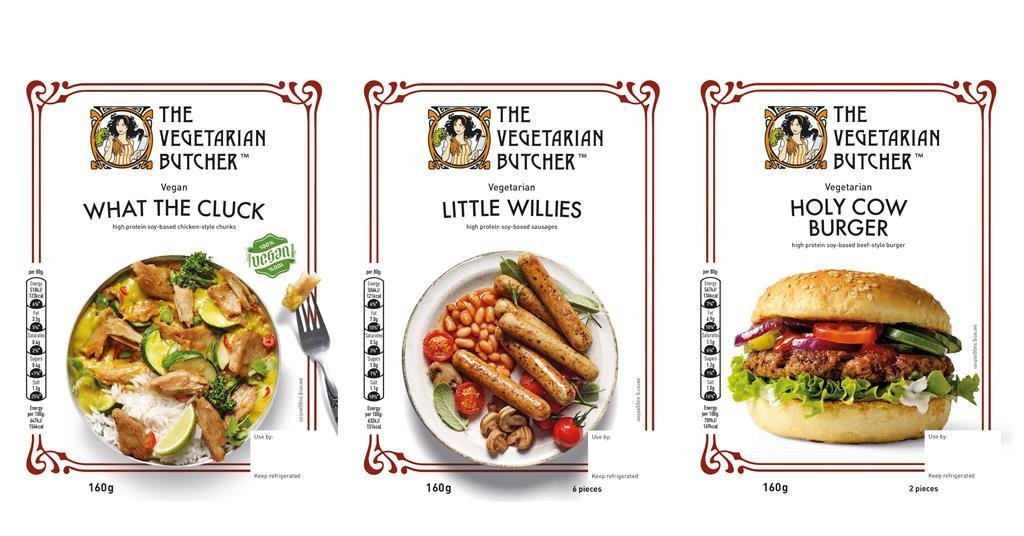Inside BENEO’s new pulse plant: pioneering sustainable protein from faba beans
Its €1 bn global sales target from plant-based meat and dairy alternatives is part of its ‘Future Foods’ ambition
Unilever has announced a new annual global sales target of €1 billion from plant-based meat and dairy alternatives, within the next five to seven years. The growth will be driven by the roll-out of The Vegetarian Butcher as well as increasing vegan alternatives from brands including Hellmann’s, Magnum and Wall’s.
The target is part of Unilever’s ‘Future Foods’ ambition, launched globally today with two key objectives: to help people transition towards healthier diets and to help reduce the environmental impact of the global food chain.
Unilever, which also makes Lipton, Ben & Jerry’s and Knorr, has also committed to
- Halve food waste in its direct global operations from factory to shelf by 2025 – five years earlier than previously committed, as part of the Champions 12.3 coalition target;
- Double the number of products delivering positive nutrition globally by 2025 – defined as products containing impactful amounts of vegetables, fruits, proteins, or micronutrients like vitamins, zinc, iron and iodine.
- Continue lowering calorie, salt and sugar levels across products- 85% of Unilever’s global Foods portfolio will help consumers reduce their salt intake to no more than 5g per day, by 2022; 95% of Unilever’s packaged ice cream will not contain more than 22g of total sugar, and 250 Kcal per serving, by 2025. This is in addition to the company’s children’s ice creams, which have been capped at 110 kcal since 2014.
Hanneke Faber, President of Unilever’s Foods & Refreshment Division, says, “As one of the world’s largest food companies, we have a critical role to play in helping to transform the global food system. It’s not up to us to decide for people what they want to eat, but it is up to us to make healthier and plant-based options accessible to all. These are bold, stretching targets which demonstrate our commitment to being a force for good.
“It is widely recognised that the current global food system is inequitable and inefficient. One billion people around the world are hungry while two billion are obese or overweight. One third of all food produced is thrown away. And animal agriculture is the second largest contributor to greenhouse gas emissions after fossil fuels and a leading cause of deforestation, water and air pollution and biodiversity loss5.”
Unilever has been expanding its plant-based meat and dairy alternatives business for several years. After acquiring The Vegetarian Butcher in 2018, Unilever has expanded the plant-based meat brand into more than 30 countries and was last year chosen as the supplier of Burger King’s Plant-Based Whopper and Plant-Based Nuggets across Europe, the Middle East and Africa.
In Ice Cream, its first vegan Magnum was awarded Best Vegan Ice Cream in the UK by PETA in 2019. Both Hellmann’s Vegan Mayo and Ben & Jerry’s Coconutterly Caramel’d Dairy-free were named as one of Nielsen’s top 25 Breakthrough Innovations in Europe for 2020.
In 2019, Unilever made an €85million investment in ‘The Hive’, a foods innovation centre at Wageningen University in the Netherlands to support research into plant-based ingredients and meat alternatives, efficient crops, sustainable food packaging and nutritious food.
The Foods & Refreshment Division’s targets also support Unilever’s global commitments to achieve a deforestation-free supply chain by 2023; invest €1 billion in a new Climate & Nature Fund; and achieve net-zero emissions for all products by 2039. The company has also pledged to ensure 100% of its plastic packaging is reusable, recyclable, or compostable by 2025.

